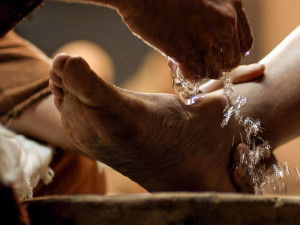 On a recent visit to the grocery store, I saw something that disturbed me. Surprisingly, it had nothing to do with exorbitant prices or people wearing their pajamas in public. It was something I had observed many times before, but it still agitates me.
On a recent visit to the grocery store, I saw something that disturbed me. Surprisingly, it had nothing to do with exorbitant prices or people wearing their pajamas in public. It was something I had observed many times before, but it still agitates me.
As I struggled to maneuver my cart of merchandise through the unplowed slush in the parking lot, I saw it. There, just to the right of my car, stood a lonely shopping cart. This bothered me for two reasons. First, it was not in the corral. Seriously, how hard is it to put the cart where it belongs? Second, it was near my car. It’s bad enough that whoever left it there did not take the extra time to put it away, but they left it within striking distance of my vehicle.
I have no idea who left the cart out of place, and I guess it shouldn’t bother me. Maybe it was an elderly grandmother who should not have been out in the snow anyway. Perhaps it was an expectant mother with three young children already in her wake.
Maybe there was a good reason. I’ll accept that. What disturbed me, though, is that I see it way too often.
I really don’t care if someone abandons a shopping cart in the middle of the parking lot. I feel bad for the employee who has to chase it down, but as long as it does not come careening toward my vehicle, it’s ok.
It’s the philosophical side of me that gets irritated. It troubles me that people are so selfish that they don’t care to perform the simplest tasks if it would make life easier for someone else.
We all have a tendency to be selfish. We care only about ourselves. Others do not matter.
Apparently Jesus knew we had this problem, because He taught us to do something radical: serve others with humility. And He didn’t only teach it; He modeled it.
Possibly the most potent example of service took place when Jesus and his disciples reclined around a table to enjoy the Passover feast. Halfway through the meal, He noticed a disgusting stench in the room. It smelled suspiciously like filthy feet. Sure enough, all of His companions had tracked in the mud and dust from the street.
Usually a servant was on hand to wash the feet of the guests. Not so today. No one said anything, but they were all aware of the “elephant in the room.” Someone was supposed to be washing the dirty feet. Who was going to take the job?
Maybe Thomas thought John should do it, but John expected Peter to volunteer. In each disciple’s mind was the thought that “someone needs to do it.” However, someone wasn’t doing it. After all, it was too humiliating. Washing feet was the job of a servant, not an honored guest.
It’s easy to sit back and expect other people to do everything. Jesus, however, took a different approach. He did not expect someone else to do it. He did not blurt out in exasperation, “One of you should have done this, but since you didn’t, I’ll do it.”
He simply finished eating, took off His coat, and started washing their feet.
Slowly He worked His way around the hushed room. Twenty-four grubby feet were dipped into the basin and scrubbed. I can imagine the discomfort of the disciples as they watched. While they each assumed that someone else should have taken the task, they all agreed that it should not be Jesus.
The most amazing part of the whole story is that Jesus knew He was the Creator and that He was about to die for the sins of this ragtag group of self-centered disciples. Still, He donned a towel and washed foot after grimy foot.
When He finished, the room was still. Shame hung thick in the air. As Jesus once again took His place of honor at the table, no eye contact was made. Finally, He broke the silence with a simple instruction: “If I then, your Lord and Teacher, have washed your feet, you also ought to wash one another’s feet” (John 13:14).
Everyone got the message. It’s not about dirty feet or deserted shopping carts, but about humility. It’s about realizing that we are not too important to serve others. Jesus did it, so maybe we should, too.
This article appeared in the Bremen Enquirer in my column Connections: Relating the Bible to Everyday Life on Thursday, March 10, 2016.



